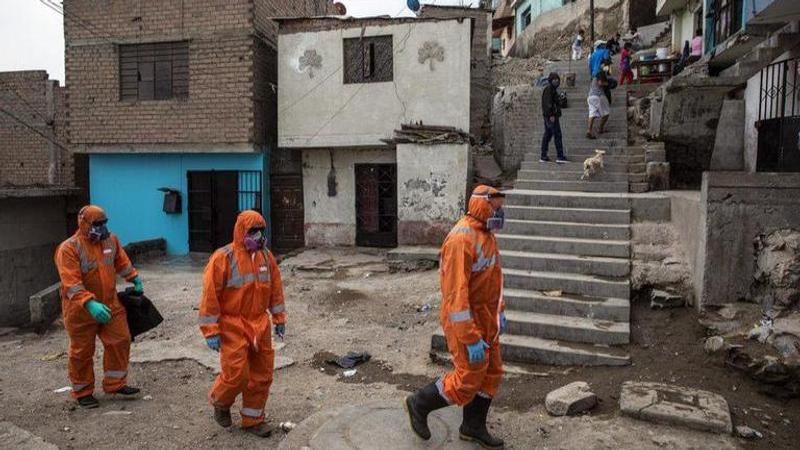Published 11:17 IST, June 9th 2020
Necessity forces many in Peru to flout virus rules
Economic pressures are making it difficult for Peruvians to abide by quarantine measures established to slow the spread of the new coronavirus that causes COVID 19.

Economic pressures are making it difficult for Peruvians to abide by quarantine measures established to slow the spread of the new coronavirus that causes COVID 19. With a casual economy reaching figures of more than 70% of the economically active population in Peru, millions are forced to leave their homes to earn their daily livelihood.
"Necessity forces us," said Maria Seminario, who works as a casual vendor.
On a recent day, the 64-year-old vendor stood in a crowded street in the center of Lima to sell plastic face shields.
"I had my store but unfortunately we cannot work and I don't have money to be able to support myself," she said.
Epidemiologist Ciro Maguiña, Vice Dean of the Medical College of Peru, told The Associated Press that people took to the streets in "the fourth or fifth week" of quarantine because they simply needed to eat.
"Eating means selling items and that's part of the informal economy," said Maguiña, one of Peru's most prestigious epidemiologists.
The quarantine in Peru, which started March 16th and will end on June 30th, is the longest in the world, surpassing Colombia with 97 days and Argentina with 80.
Maguiña is among those who opposes the general quarantine for the 32 million Peruvians because he considers that they don't have the financial means to stay at home.
From Monday through Saturday between the hours of 2100 and 0400, and all day Sunday, Peruvians must remain at home.
The rest of the time only food markets, banks and pharmacies are allowed to operate.
Home delivery of food and other basic services are also permitted.
However, despite the lockdown measures, millions of Peruvians continue to sell products in the streets because they need the income.
As of May, 1.2 million were left out of work in Lima, an unprecedented and historic figure in the official records of the South American nation.
Economists believe that Peru's economic crisis will be similar to the aftermath left behind by a war against Chile in the late 19th century.
As of Monday Peru had almost 200,000 cases of the virus and 5,500 deaths.
Updated 11:17 IST, June 9th 2020




